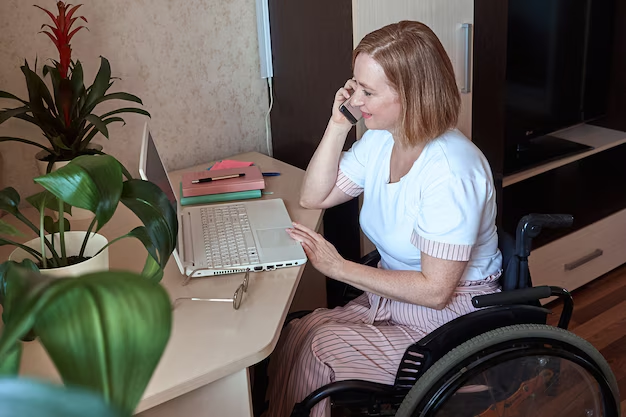Finding the Perfect Handicap-Accessible Apartment: Key Considerations and Resources
Navigating the search for handicap-accessible apartments can be as challenging as it is essential. With rising awareness and advancing legislation, more options are available today than ever before. Yet, understanding what "accessible" truly means can significantly impact your quest for a seamless living experience.
What to Look for in an Accessible Apartment
Identifying an apartment that accommodates your specific needs requires attention to several crucial details:
- Entrance Accessibility: Look for automatic doors or those with handles that are easy to grip, as well as ramps or elevators in multi-story buildings.
- Bathroom Features: Roll-in showers, grab bars, and sink heights tailored for wheelchair use are essential.
- Kitchen Layout: Countertops and storage designed for seated use can greatly enhance independence.
- Maneuverability: Ensure that doorways and hallways are wide enough for wheelchairs and that there is sufficient space in each room to move freely.
Understanding these features can help set the standard for your search and prevent potential frustrations later on.
Legal Standards and Protections
The Americans with Disabilities Act (ADA) and the Fair Housing Act (FHA) are two primary regulations that protect individuals with disabilities. These laws mandate that certain features (such as accessible parking and common areas) be included in many new constructions. However, older buildings might not be mandated to meet these standards, making it crucial to verify compliance when housing hunting.
Financial Aid and Support Programs
While accessibility might seem costly, various programs exist to ease the financial burden:
- Section 8 Housing: Low-income individuals may qualify for Section 8 vouchers to help cover rent in privately-owned, accessible apartments.
- State Disability Programs: Many states offer disability-specific housing assistance, providing grants or loans for needed modifications.
- Local Non-Profits: Organizations often provide financial aid or modifications at reduced costs to support accessible housing needs.
Moreover, knowing your legal rights can also play a key role in negotiating with landlords for necessary adjustments.
Finding Help: Where to Begin
Identifying the right apartment is often best approached through a combination of online resources, local housing authorities, and disability advocacy groups. Websites dedicated to accessible rentals can provide substantial data on available properties, while local housing authorities often have lists of certified facilities.
Increasing Accessibility through Financial Resources
For many, securing an accessible apartment means more than just finding the right place. It also involves navigating financial landscapes:
- Government Aid Programs: Besides the Section 8 housing program, the Department of Housing and Urban Development (HUD) provides various options for financial assistance specific to disabilities.
- Financial Assistance: State and local governments often have programs in place to provide loans or grants for making renovations or offsetting rent costs.
- Debt Relief and Credit Solutions: Tools such as debt counseling services or credit union loans might offer a fresh start for those managing financial obligations while seeking accessible living arrangements.
By understanding and utilizing these resources, individuals can secure apartments that not only meet their physical needs but also fit within their financial plans.
Closing the accessibility gap starts with informed choices supported by trustworthy resources. Whether it's government aid or local support networks, the potential to secure a suitable living environment is closer than ever. Embrace the journey towards finding an accessible apartment, and explore the financial and legal pathways that empower independence and dignity.
Useful Resources to Explore:
- 🏡 Section 8 Housing Program: Federal assistance for low-income individuals.
- 💸 State Disability Housing Programs: Grants and loans for accessible modifications.
- ❤️ Local Non-Profits: Community organizations offering financial aid for adaptive needs.
- 📚 Financial Counseling Services: Navigating debt relief or credit improvement.
- 📞 Disability Advocacy Groups: Providing guidance and support in finding accessible housing.
Explore these avenues to better support your journey toward accessible and affordable housing.

